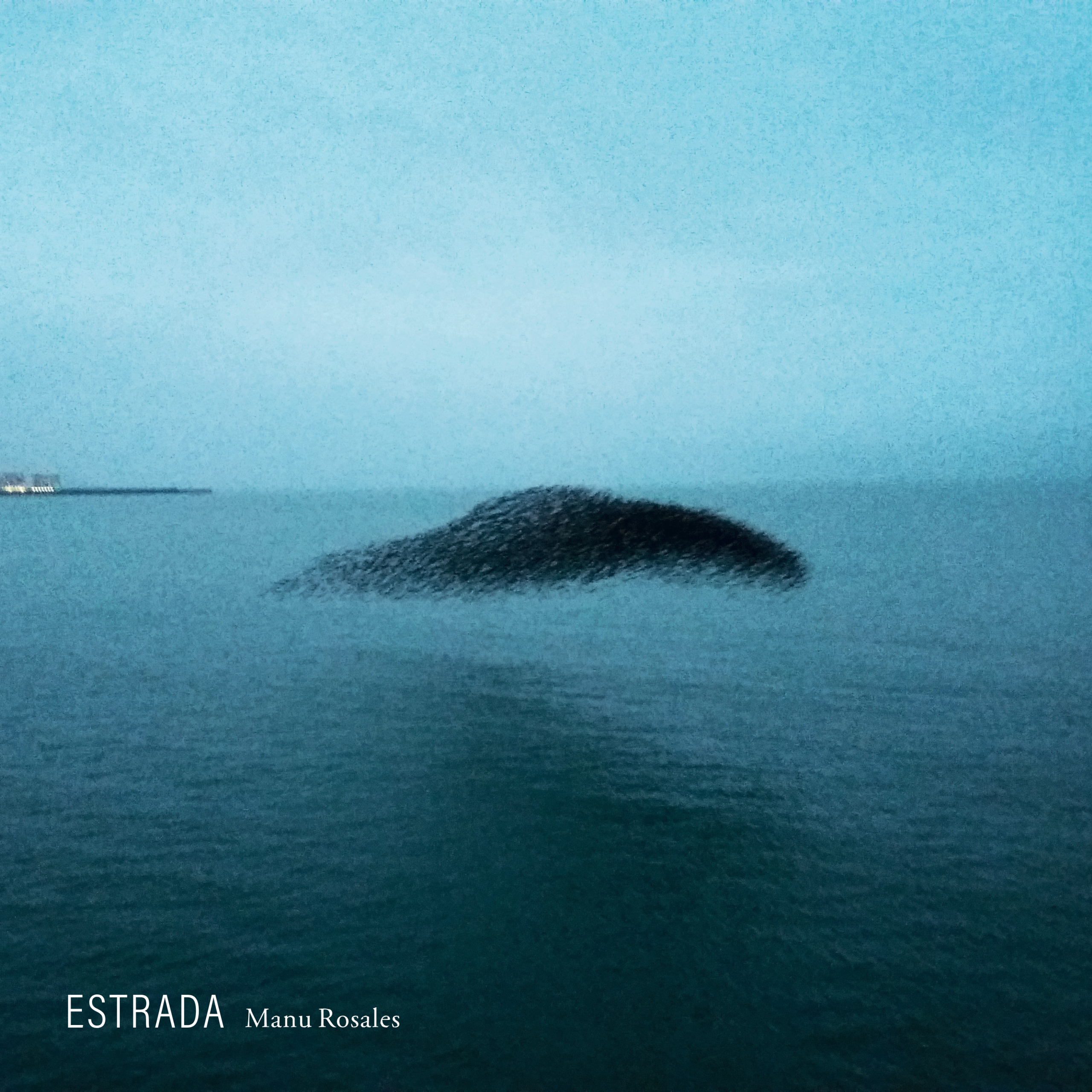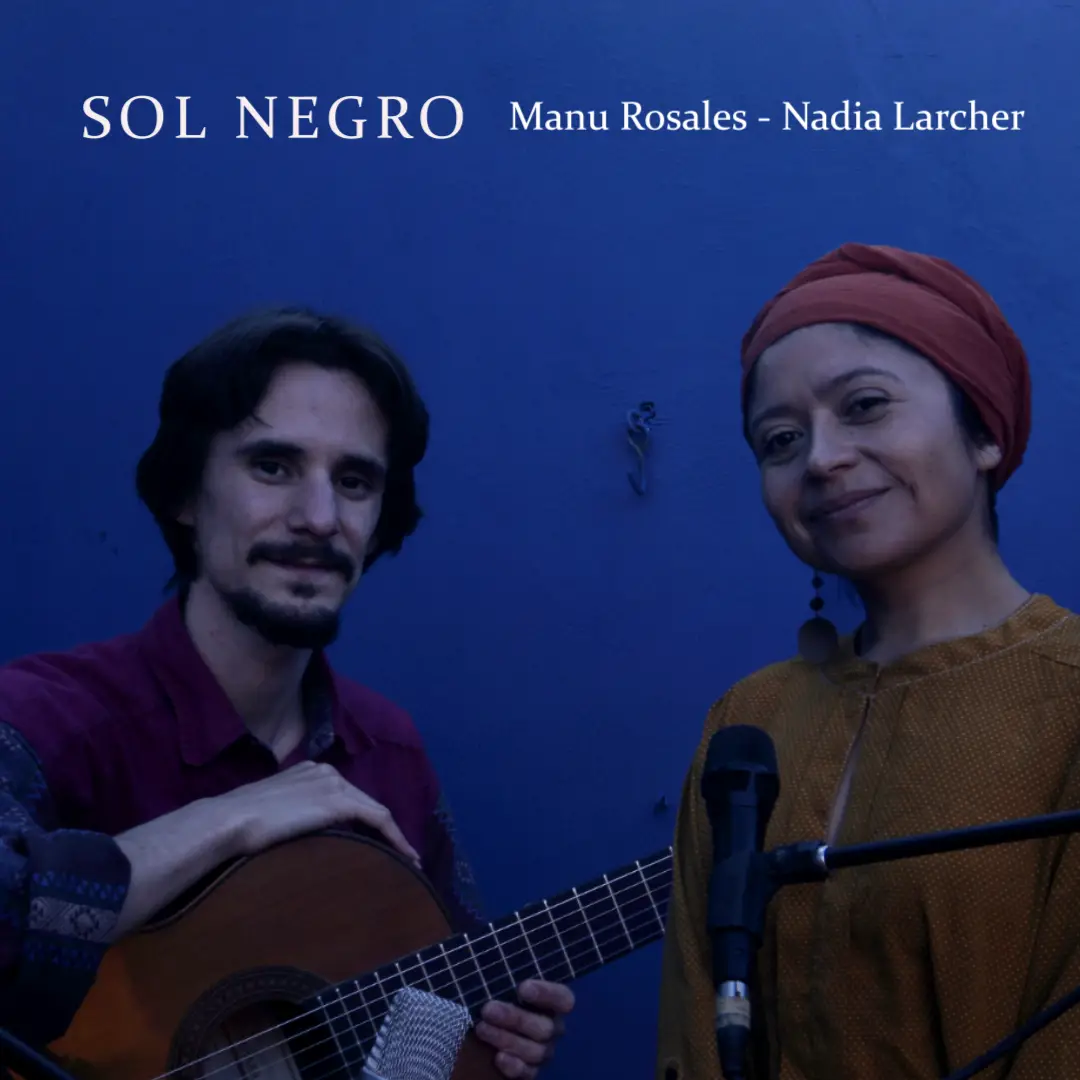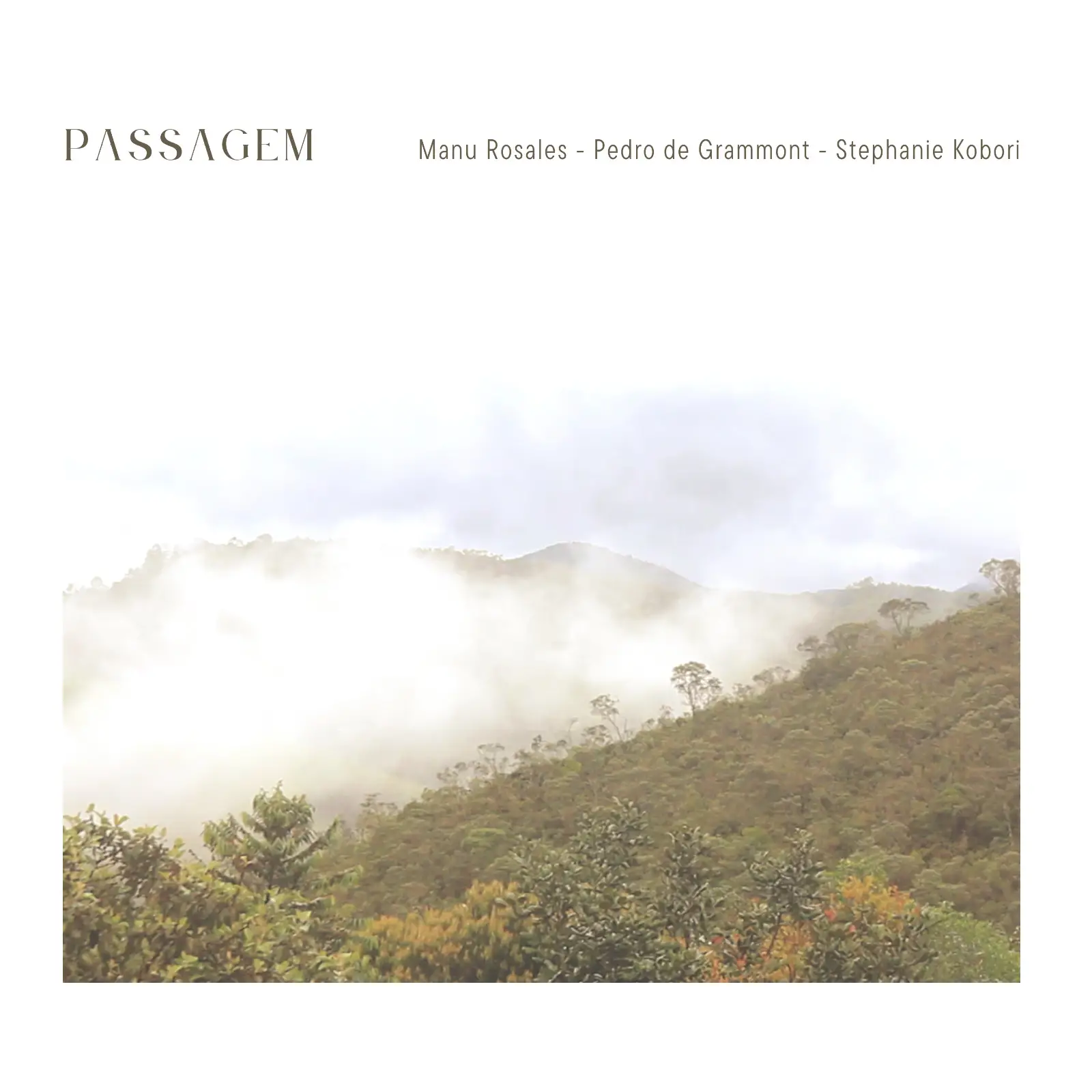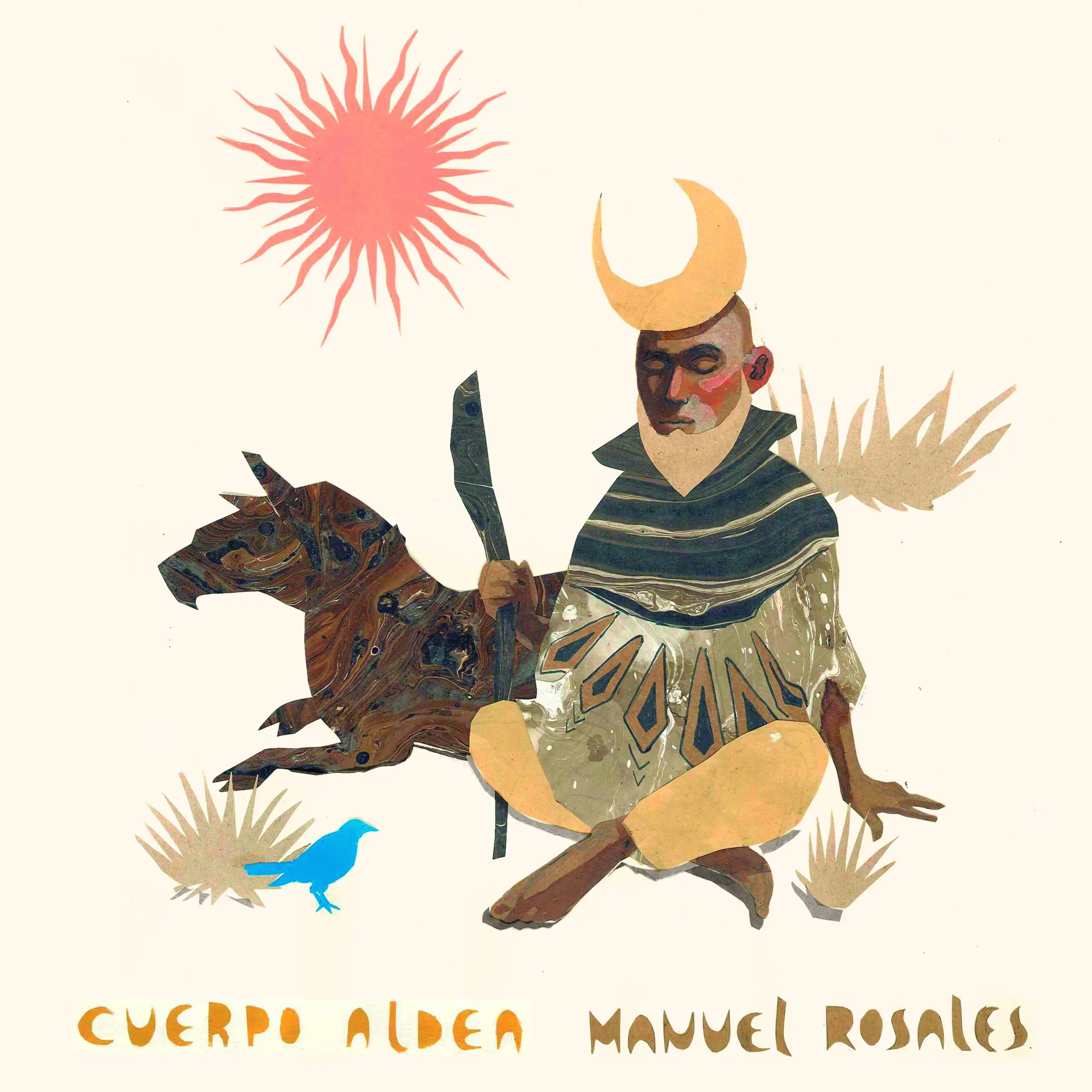
Estrada (2023)
Estrada’s poetics proposes to shift the focus from personal biography to the landscapes and encounters that arise along the way.
The compositions invite reflection, and the possibility of listening to a proposal different from what is usually associated with the category of “singer-songwriter”, showing a contemporary songwriting style emerging in Buenos Aires. The songs evoke forced migrations, the longing for home, and the ongoing revelation of the climate crisis.
The music has its origins in the multiple influences that exist in a cosmopolitan city like Buenos Aires. The lyrics move between two languages, Spanish and Portuguese.

Sol Negro (2023)
Nadia Larcher says: «Sol Negro» is a kind of spring song. Singing this song is feeling and accepting the black hole of our existence, the exact place where we know that despite how difficult it is to sustain our principles in a world on fire, it is vital to sustain the poetry of a life consistent with utopias.»
In this version we can hear the poetry sung in Spanish, unlike the album where it is sung in Portuguese.

Passagem (2023)
Recorded during the Pana’mby Residency (Ouro Preto, Brazil). » Passage» is a collaboration with guitarist and composer Pedro de Grammont and clarinetist Stephanie Kobori.

Cuerpo Aldea
Cuerpo Aldea can be translated as “body village”. As the title expresses, the compositions are born from multiple influences, South American traditions in dialogue with a singular body. A village where all heard sounds and all that was apprehended over time converges.
In Manu Rosales’ debut album, the guitar and the composer’s voice are protagonists elements. However, the compositions have a diverse instrumentation including arrangement with flute, clarinet, quena, sikus, double bass, cello, percussion set, didgeridoo and Kora.